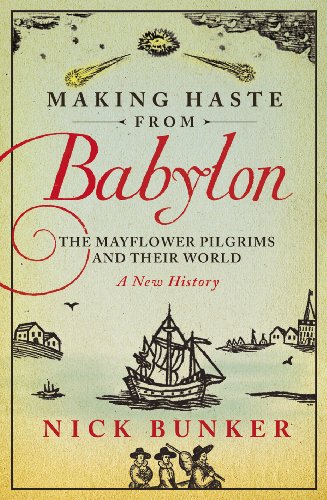Making Haste from Babylon
Why did the Pilgrims set sail in the Mayflower, and what has been their influence on both American and English history? This copiously researched book delves into hitherto ignored archives as well as consulting archaeology, linguistics and landscape. Bunker constructs a detailed, wide-ranging account, not just of the voyage and settlement, which takes up a relatively small proportion of the whole, but of the circumstances which drove the Pilgrims to Holland, then New England. The scope of the research can be judged by thirty-four closely printed pages of references.
Starting with a description of the land the Pilgrims would encounter, then conditions in Europe and especially Plymouth, England, just before 1620, and the Mayflower voyage, the author then steps back to describe the religious, economic and social problems faced by men and women who rejected the established church and its rules. The Pilgrims were by then discovering the disadvantages of life in Holland, where war threatened.
This is more than the story of physical survival and religious freedom. There is relatively little about domestic events, far more about the land and its natural resources. The project, financed by merchants hoping for profit from the fashionable and prized beaver pelts, was commercial as well as religious. They set up their own system of government, their first act being to sign their ‘Compact’, a document the importance of which the author suggests has been ignored. After the first decade of barely surviving, the colony becomes established, the nucleus of Puritan New England just as conditions back in England encouraged further massive emigration.
This is a scholarly, highly detailed account. I would have appreciated a few more maps, and did not like the jump in chronology, but nevertheless found it absorbing and informative of many things in addition to the Pilgrims.










